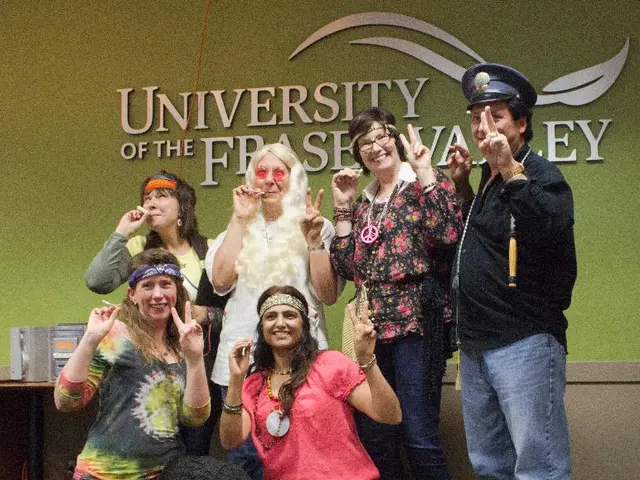Career Achievements Without Offspring Causes Guilt Regarding Ancestral Lineage
As I ponder the women who share my namesake, it hits me that I'm the end of a line, the last link in a chain that stretches back for five generations or more. Annas and Marias, Maria Graziana, Anna Marie, and Anna Margaret are just branches to me, women who settled in Brooklyn centuries ago, hailing from either Ireland or Italy.
My mother and her mother, Anna and Maria, are the women I think of the most. They raised me and are the ones I remember when I sign a document or order a coffee. Yet, I can't help but think of the tough lives they led, living in times when they had no choices, focusing on survival.
Today, their stories are relegated to census data and ship manifests. My family line, which has carried these names for so long, may well end with me, as I approach 40 and am unlikely to have children of my own. I often wonder what my ancestors would think of the life I've chosen.
I'm Tired and Ready to Ease Up
I was raised hearing stories about my mother hiding me in her service van because she couldn't afford childcare at her job with the telephone company. She believed her hard work and sacrifices would provide me with a life she never had. She sent me to language classes to lose my New York accent and concocted elaborate tales about how one day, I'd work in an office across the river in Manhattan and own a house.
I did climb the ladder of success, achieving dreams I never knew I had. I've traveled to six continents, had dream jobs, met celebrities, politicians, and members of royal families. I own my own house, proudly displaying a black-and-white photo of my maternal family - a reminder of whom I owe it all to.
But I harbor a secret: I'm utterly exhausted, and I'm eager to stop striving.
A Longing for the Simple Life My Ancestors Knew
Now, I yearn for the Neapolitan hill towns and Irish fields my ancestors knew. I scroll Instagram, dreaming of affordable fixer-uppers in the Abruzzo, where I can eat tomatoes straight from the vine and chat with neighbors in community gardens.
I crave a simpler existence. I yearn for slower pace. I long for the time to immerse myself in art and literature, to truly appreciate the beauty around me, to engage with new people. I want to know every star in the sky by name. But if I stop climbing and chasing achievements, will I disappoint them?
There's plenty of research on the psychological effect of high expectations. It's common for familial traditions to shape our life paths. And when those relatives are gone, there's the added burden of wondering if we've truly made the most of our time. We all want the people we love to be proud of us.
Should-I versus Want-I
A study from 2007 by scientists Todd Rogers and Katy Milkman sheds light on this feeling. They call it the "Should-I versus Want-I" - that is, what we should do versus what we truly want to do. In everyday life, it often revolves around making choices that bring immediate gratification (e.g., taking a chocolate bar instead of apples) at the expense of long-term benefits.
In this psychological phenomenon, the desire for instant pleasure clashes with the drive for broader, long-term advantages. This dilemma can play out in various situations, big and small, and it's essential to strike a balance between our desires and obligations.
Psychologist and author Nancy Colier takes this idea further, connecting the desire to be seen as a conscientious, reliable person with a focus on creating a better future with the hunger for immediate satisfaction and the pleasure of instant gratification. But the list of "shoulds" isn't always about creating a better future; it can also emerge from family traditions that no longer hold value for anyone.
Prioritizing What I Want
Several moments in my life spark the question, "Am I doing enough?" Am I making the most of every opportunity that comes my way? Have I reached the pinnacle of my career and become the perfect social butterfly? What would my ancestors think of what I've done with the opportunities they provided me?
But lately, after much reading and soul-searching, I've decided to flip the narrative. No more sacrificing my wants for what others expect of me; I'm embracing my desires, because true freedom of choice means understanding how to be happiest with the time I've been given. And hopefully, that's what Anna and Maria would be proud of.
Enrichment Data:
- The tension between externally imposed obligations and authentic desires can lead to internal conflicts that reshape identity, relationships, and mental health[1].
- Parental behaviors and communication styles shape how individuals approach choices, particularly in relationship and conflict resolution[2].
- Self-worth becomes tied to compliance with family expectations, fostering dependence on external approval[3].
- If family expectations are abusive or coercive, estrangement may be a necessary step towards psychological recovery[4].
- What would my ancestors think of the life I've chosen, I often wonder, considering their tough lives focused on survival versus the cushioned contentpass I've cultivated in my entertainment-filled lifestyle.
- As I yearn for the Neapolitan hill towns and Irish fields of my ancestors, I find myself prioritizing Want-I over Should-I, daring to trade immediate gratification for a simpler, slower lifestyle devoted to education-and-self-development and personal-growth.
- Pondering my lineage, I wonder if Anna and Maria, who faced many challenges and had few choices, would approve of my decision to step away from the relentless pursuit of career accolades and social success, instead finding contentment in relationships and meaningful experiences.
- I've realized that balancing the "Should-I versus Want-I" is not about disappointing my forebears; it's about coming to terms with the fact that, just as my maternal family encouraged my dreams and aspirations, I must now encourage my own, to find true fulfillment and engagement with the world around me.
- The tension between expectations and personal desires is not unique to my situation - it stirs feelings of guilt and uncertainty, especially when navigating relationships, career, and self-worth - but in embracing Want-I, I can break free from the cycle of perceived obligations, forge my own path, and honor the remarkable legacies of my ancestors.







